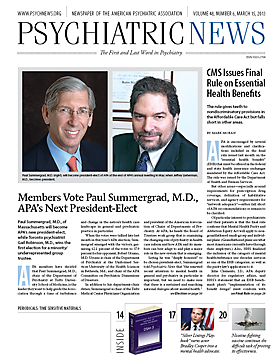Immunization with a nicotine vaccine can reduce the amount of nicotine binding to receptors in the brain, reported researchers at Yale School of Medicine online February 22 in AJP in Advance. That’s good news for those who are rooting for the eventual success of a nicotine vaccine as a treatment or preventative for addiction to tobacco.
Treating tobacco addiction by vaccination is a concept that has received much attention in the last decade. Nicotine is considered the most-addictive constituent in tobacco cigarettes, and nicotine vaccines are designed to stimulate the production of antibodies specific to the nicotine molecule. The composite of nicotine bound to these antibodies is too large to cross the blood-brain barrier, reducing the amount and rate of nicotine entering the brain and, consequently, its reinforcing and addictive effects.
The concept sounds simple and effective. But the technology was dealt a significant blow in late 2011, when one vaccine’s developer, Nabi Pharmaceuticals, announced that its vaccine did not meet its primary endpoint in the company’s second of two phase 3 clinical trials. Although the vaccine appeared safe and was well-tolerated, there was no statistical difference between those who received the vaccine and those who received a placebo.
That looked like the death knell for that particular nicotine vaccine. But researchers like Irina Esterlis, Ph.D., an assistant professor of psychiatry and of diagnostic radiology at Yale, and her colleagues have continued to explore the vaccine’s effects. They recently sought to evaluate its effectiveness in reducing nicotine’s entry into the brain and binding to nicotinic acetylcholine receptors. They used single photon emission computed tomography (SPECT) to evaluate the effect of the vaccine on the amount of nicotine that binds to receptors in the cortical and subcortical regions of smokers’ brains. Their subjects were 11 smokers who smoked an average of 19.5 cigarettes per day, had smoked for 10 years on average, and were judged to be moderately dependent on nicotine as determined by the FagerstrɆm Test of Nicotine Dependence.
“Because we knew we would be administering nicotine to the participants during the study, we recruited participants who were not seeking treatment for nicotine dependence,” Esterlis explained to Psychiatric News.
The smokers underwent scanning on two occasions, before and after immunization with a series of four injections of the vaccine, given at four-week intervals. On scan days, three 30-minute baseline emission scans were followed by intravenous administration of nicotine and up to nine 30-minute scans.
The scans showed that immunization led to a significant reduction in nicotine’s ability to enter the brain and bind to receptors. “We observed a 12.5 percent decrease in [receptor] occupancy by nicotine, associated with a 23.6 percent decrease in the amount of nicotine available to enter the brain after vaccination,” reported the researchers. In addition, all of the subjects had titer levels indicating that antibodies for nicotine had been developed. The participants also reported significant reductions in cigarette use and craving.
Why were these new findings incongruent with those of the clinical trials? “We believe the discrepancies are likely due to all of the subjects in our study having achieved necessary titer levels and having their smoking outcomes evaluated at different time periods post-immunization,” Esterlis told Psychiatric News. Levels of antibody titers may have been suboptimal in the majority of the smokers in the clinical trials, which also compared smoking cessation outcomes for vaccination and placebo months after the vaccination schedule, whereas the present study concentrated on the period immediately following immunization. “I don’t think the vaccine is the full answer [to addiction to smoking], mostly because its effects are transient,” said Esterlis, who nevertheless holds out hope that the technology will be a useful adjunct to treatment.
And that may be. At the same time Esterlis and colleagues were conducting their study, researchers at the Maastricht University Medical Center in the Netherlands were evaluating use of the vaccine co-administered with varenicline in conjunction with intensive counseling as an aid in smoking cessation and relapse prevention in a double-blind, randomized, placebo-controlled trial. The study was completed in September 2012, but results haven’t yet been announced.
Esterlis’ study was supported by grants from the National Institute of Mental Health, National Institute on Drug Abuse, and Canadian Institutes of Health. ■

